
Filter News
Area of Research
News Topics
- (-) Microelectronics (3)
- (-) Microscopy (51)
- (-) Renewable Energy (2)
- 3-D Printing/Advanced Manufacturing (120)
- Advanced Reactors (34)
- Artificial Intelligence (91)
- Big Data (53)
- Bioenergy (91)
- Biology (98)
- Biomedical (58)
- Biotechnology (22)
- Buildings (57)
- Chemical Sciences (63)
- Clean Water (29)
- Climate Change (99)
- Composites (26)
- Computer Science (187)
- Coronavirus (46)
- Critical Materials (25)
- Cybersecurity (35)
- Decarbonization (79)
- Education (4)
- Element Discovery (1)
- Emergency (2)
- Energy Storage (108)
- Environment (194)
- Exascale Computing (37)
- Fossil Energy (5)
- Frontier (42)
- Fusion (54)
- Grid (62)
- High-Performance Computing (84)
- Hydropower (11)
- Irradiation (3)
- Isotopes (53)
- ITER (7)
- Machine Learning (47)
- Materials (143)
- Materials Science (139)
- Mathematics (7)
- Mercury (12)
- Molten Salt (8)
- Nanotechnology (60)
- National Security (61)
- Net Zero (13)
- Neutron Science (131)
- Nuclear Energy (107)
- Partnerships (43)
- Physics (61)
- Polymers (33)
- Quantum Computing (34)
- Quantum Science (69)
- Security (24)
- Simulation (47)
- Software (1)
- Space Exploration (25)
- Statistics (3)
- Summit (57)
- Sustainable Energy (125)
- Transformational Challenge Reactor (7)
- Transportation (97)
Media Contacts
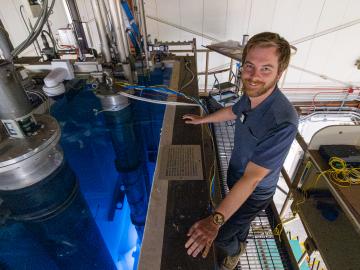
ORNL researchers completed successful testing of a gallium nitride transistor for use in more accurate sensors operating near the core of a nuclear reactor. This is an important technical advance particularly for monitoring new, compact.

Researchers set a new benchmark for future experiments making materials in space rather than for space. They discovered that many kinds of glass have similar atomic structure and arrangements and can successfully be made in space. Scientists from nine institutions in government, academia and industry participated in this 5-year study.
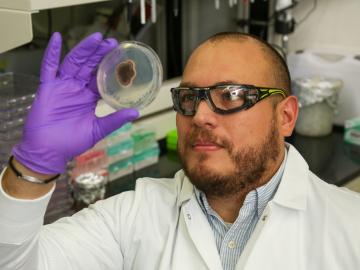
New computational framework speeds discovery of fungal metabolites, key to plant health and used in drug therapies and for other uses.
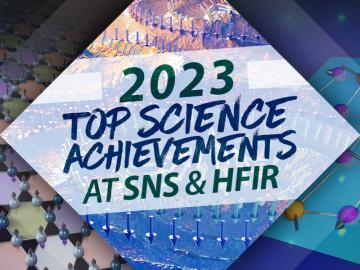
The 2023 top science achievements from HFIR and SNS feature a broad range of materials research published in high impact journals such as Nature and Advanced Materials.
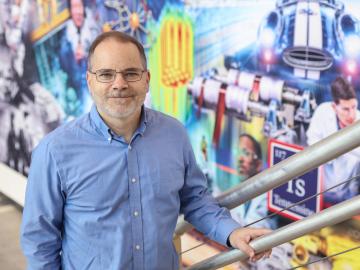
ORNL has been selected to lead an Energy Earthshot Research Center, or EERC, focused on developing chemical processes that use sustainable methods instead of burning fossil fuels to radically reduce industrial greenhouse gas emissions to stem climate change and limit the crisis of a rapidly warming planet.
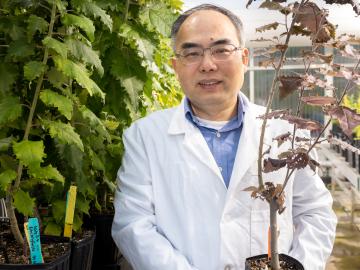
Scientist Xiaohan Yang’s research at the Department of Energy’s Oak Ridge National Laboratory focuses on transforming plants to make them better sources of renewable energy and carbon storage.

Speakers, scientific workshops, speed networking, a student poster showcase and more energized the Annual User Meeting of the Department of Energy’s Center for Nanophase Materials Sciences, or CNMS, Aug. 7-10, near Market Square in downtown Knoxville, Tennessee.

Madhavi Martin brings a physicist’s tools and perspective to biological and environmental research at the Department of Energy’s Oak Ridge National Laboratory, supporting advances in bioenergy, soil carbon storage and environmental monitoring, and even helping solve a murder mystery.
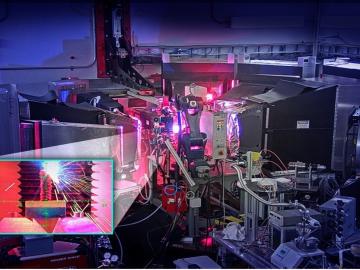
Technologies developed by researchers at ORNL have received six 2023 R&D 100 Awards.

Researchers at the Department of Energy’s Oak Ridge National Laboratory are supporting the grid by improving its smallest building blocks: power modules that act as digital switches.


